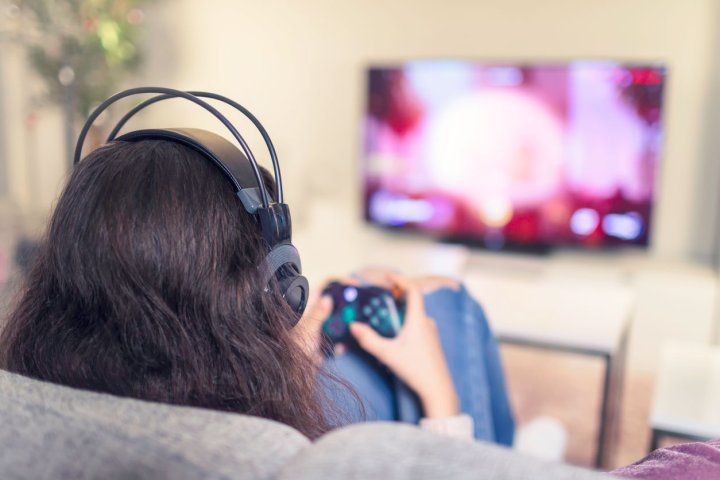
Many parents fretted over their children's screen use during the pandemic with good reason, according to a new study in JAMA Pediatrics. UC San Francisco-led researchers found that 12- to 13-year-old children in the United States doubled their non-school-related screen time to 7.7 hours a day in May 2020, compared to 3.8 hours a day before the pandemic. The study also found that children of color and those from lower-income families logged more hours on screens than their white, wealthier peers.
The study found the most common recreational activities were watching or streaming movies, videos and television, followed by gaming.
Spending more time on screens has mental health effects, including more depression and anxiety, said Jason Nagata, MD, lead author on the JAMA Pediatrics study and UCSF assistant professor of pediatrics. "As screen time increased, so did adolescents' worry and stress, while their coping abilities declined," Nagata said. "Though social media and video chat can foster social connection and support, we found that most of the adolescents' screen use during the pandemic didn't serve this purpose."
Screen time lends itself to more sedentary time and less physical activity, snacking while distracted, eating in the absence of hunger, and greater exposure to food advertising.
Excessive screen use in adolescents also is associated with weight gain and binge eating, Nagata noted: "Screen time lends itself to more sedentary time and less physical activity, snacking while distracted, eating in the absence of hunger, and greater exposure to food advertising."
Research conducted before the pandemic found screen time differed by race and income, and the current study saw those trends persist.
"We generally found higher screen time in Black and Latino/a adolescents and in those from lower-income households," Nagata said. "This may be due to structural and systemic factors, such as lack of financial resources to do other kinds of activities or lack of access to safe outdoor spaces."
Screen time amounts were self-reported by 5,412 adolescents ages 12-13 years who are taking part in the Adolescent Brain Cognitive Development (ABCD) longitudinal study. The ABCD study is following nearly 12,000 preadolescents into their adolescent years, from 2016 to 2026.
Authors: UCSF co-authors are Jason Nagata, MD; Kirsten Bibbins-Domingo, PhD, MD; Chloe Cattle, BS; and Puja Iyer, BA. Additional authors and affiliations can be found in the paper.
Funding: The study was funded in part by the National Institutes of Health (grant #K08HL159350). Dr. Nagata also was funded by a Career Development Award (CDA34760281) by the American Heart Association.
The University of California, San Francisco (UCSF) is exclusively focused on the health sciences and is dedicated to promoting health worldwide through advanced biomedical research, graduate-level education in the life sciences and health professions, and excellence in patient care. UCSF Health, which serves as UCSF's primary academic medical center, includes top-ranked specialty hospitals and other clinical programs, and has affiliations throughout the Bay Area.






